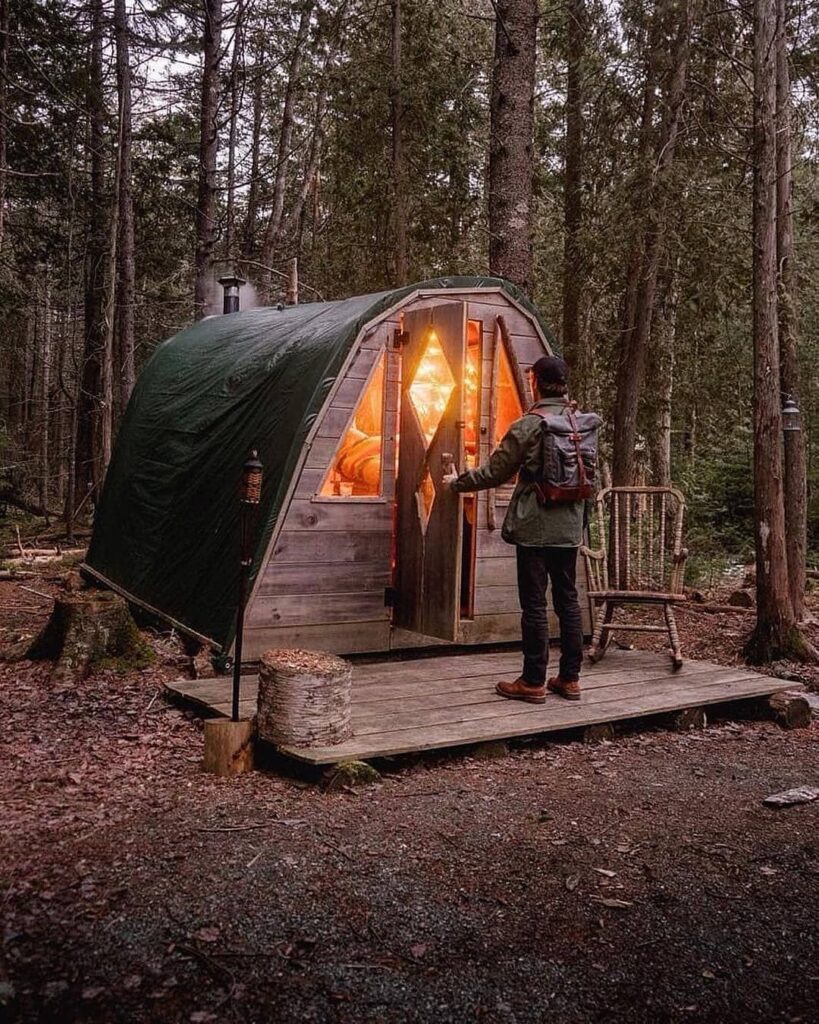In a world dominated by technology and convenience, the allure of the bushcraft mindset is more appealing than ever. Imagine a life where self-reliance and resourcefulness are not just survival skills but a way of embracing the challenges of the great outdoors and everyday life. Let’s delve into the essence of developing a bushcraft mindset and explore the transformative power it can have on our lives.
Understanding Bushcraft
What is Bushcraft?
At its core, bushcraft is the art of thriving in the natural environment through skills like firecraft, tracking, shelter-building, and foraging. It’s not merely about survival but about embracing the symbiotic relationship between humans and nature. If you’ve ever been intrigued by the idea of bushcraft but aren’t quite sure what it entails, here are ten essential things to help you understand the essence of this fascinating outdoor skill set.
1. Survival Mastery
At its core, bushcraft is the art of mastering survival skills in the great outdoors. It goes beyond basic survival instincts, focusing on developing a comprehensive skill set that allows individuals to thrive in the wilderness.
2. Primitive Skills
Bushcraft emphasizes the use of primitive skills, often relying on techniques that predate modern conveniences. From creating fire without matches to crafting tools from natural materials, these skills connect individuals with our ancestral roots.
3. Resourcefulness Over Resources
Unlike survivalism, which often stockpiles resources, bushcraft places a premium on resourcefulness. It’s about making the most of what nature provides, using ingenuity and creativity to adapt to different environments.
4. Understanding Nature’s Language
Bushcraft involves a deep understanding of the natural environment. Practitioners learn to read the signs and signals nature provides, from tracking animal movements to predicting weather changes.
5. Holistic Approach
It’s not just about individual skills; bushcraft adopts a holistic approach to outdoor living. It encompasses various skills such as shelter-building, foraging, water purification, and navigation, creating a well-rounded set of abilities.
6. Adapting to Uncertainty
Bushcrafters embrace uncertainty as a natural part of the wilderness experience. The ability to adapt to unexpected challenges is a fundamental aspect of the mindset, fostering resilience and self-confidence.
7. Connection with Nature
Developing a bushcraft mindset involves fostering a deep connection with nature. It’s not just about surviving in the wild; it’s about coexisting harmoniously with the natural world.
8. Versatility in Urban Settings
While rooted in outdoor survival, bushcraft principles can be applied in urban settings. From using everyday objects creatively to navigating city landscapes, the bushcraft mindset proves to be versatile and relevant in various environments.
9. Community and Knowledge Sharing
Bushcraft is often a communal experience. Enthusiasts gather to share experiences, techniques, and knowledge. Building a community fosters a sense of camaraderie and ensures that skills are passed down through generations.
10. Lifestyle Choice
For many, bushcraft is more than a set of skills; it’s a lifestyle choice. It encourages continuous learning, adaptation, and a mindset that extends beyond the wilderness, shaping the way individuals approach challenges in their everyday lives.
Cultivating a Connection with Nature
Developing a bushcraft mindset starts with fostering a deep connection with nature. It’s about understanding the language of the wilderness, reading the signs in the environment, and appreciating the interconnectedness of all living things.
Self-Reliance in the Wild
From starting a fire without matches to purifying water and building a makeshift shelter, self-reliance in the wild demands a set of fundamental skills. It’s the ability to adapt and overcome challenges with minimal resources, relying on one’s knowledge and ingenuity.
Embracing the Unknown
In the bushcraft mindset, uncertainty is not a threat but an ally. It’s an opportunity to test one’s skills and push boundaries. Embracing the unknown fosters resilience and the confidence to navigate through unpredictable situations.
Resourcefulness
While self-reliance is about individual skills, resourcefulness is about making the most of the resources at hand. It involves creativity, adaptability, and a keen eye for opportunities in the environment.
Using Nature’s Bounty
Resourcefulness in bushcraft involves utilizing nature’s bounty – from identifying edible plants to crafting tools from natural materials. It’s about understanding the ecosystem and respecting its offerings.
Applying Bushcraft Principles in Everyday Life
The bushcraft mindset is not limited to the wilderness. Its principles can be applied in urban environments, fostering a sense of preparedness and adaptability. From navigating crowded city streets to dealing with unexpected challenges, the bushcraft mindset is a versatile tool.
Problem-Solving in Daily Challenges
In a world where convenience often takes precedence, the bushcraft mindset teaches us to approach everyday challenges with a problem-solving attitude. It’s about finding creative solutions with the resources available, whether in the heart of nature or the heart of the city.
Nurturing the Bushcraft Mindset
Nurturing a bushcraft mindset is not a solitary journey. Building a community of like-minded individuals fosters learning, sharing, and a sense of belonging. It’s a space where experiences are exchanged, and knowledge is passed down from one generation of outdoor enthusiasts to the next.
Continuous Learning and Adaptation
The bushcraft mindset is not static; it evolves with experience and continuous learning. It encourages individuals to stay curious, embrace new challenges, and adapt to changing circumstances. This dynamic approach ensures that the mindset remains relevant and effective.
Conclusion
In a world that often disconnects us from nature, developing a bushcraft mindset is a powerful way to reconnect with our primal instincts. It goes beyond survival skills; it’s a philosophy that encourages self-reliance, resourcefulness, and a deep respect for the environment. Whether you find yourself in the heart of the wilderness or the heart of the city, the principles of the bushcraft mindset offer a roadmap to navigate life’s challenges with confidence and ingenuity. So, why not embark on this journey and discover the transformative power of embracing a bushcraft mindset?







